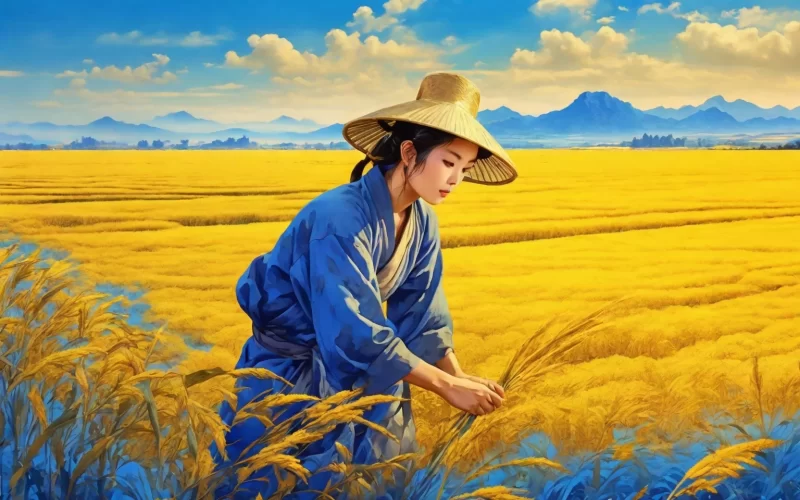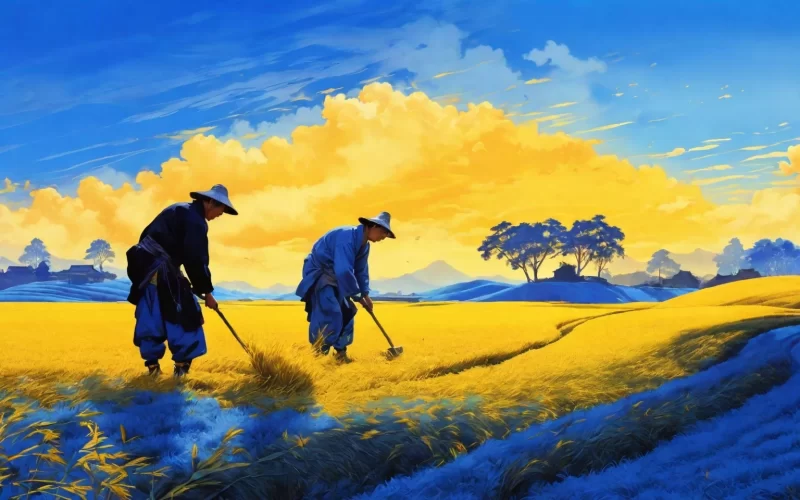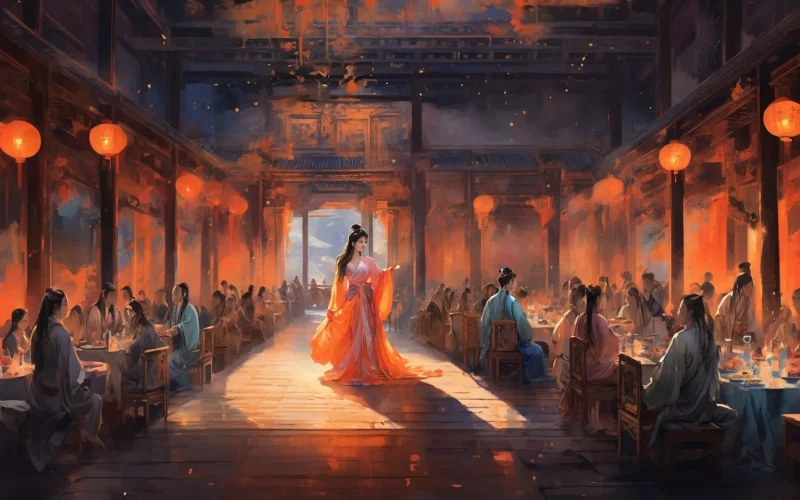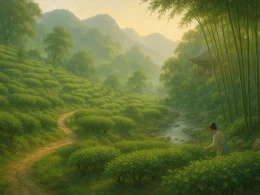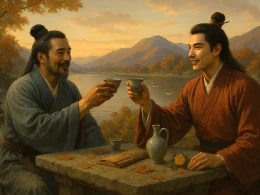At noon they weed with hoes;
Their sweat drips on the soil.
Each bowl of rice, who knows?
Is the fruit of hard toil.
Original Poem
「悯农 · 其二」
李绅
锄禾日当午,汗滴禾下土。
谁知盘中餐,粒粒皆辛苦。
Interpretation
Composed during the tumultuous mid-Tang Dynasty marked by oppressive taxation and social upheaval, this second poem from Li Shen’s "Sympathy for the Peasants" series lays bare the brutal reality of agrarian life. While farmers toiled under backbreaking labor and official exploitation, Li—a scholar-official with firsthand knowledge of their suffering—penned these unadorned verses to awaken society’s conscience toward rural injustice.
First Couplet: "锄禾日当午,汗滴禾下土。"
Chú hé rì dāng wǔ, hàn dī hé xià tǔ.
At noon they weed crops under scorching skies; Each sweatdrop sinks where the young grain lies.
With visceral simplicity, the lines capture the cruel paradox of farming: life-sustaining labor under life-threatening conditions. "Noon" (日当午) sharpens the agony with solar tyranny, while "sweatdrops sinking into soil" crystallizes the physicality of suffering—a literal merging of human exertion with the earth it nourishes.
Second Couplet: "谁知盘中餐,粒粒皆辛苦。"
Shéi zhī pán zhōng cān, lì lì jiē xīnkǔ.
Who truly knows the rice upon their plate? Each grain was bought with pain as freight.
The rhetorical "who knows" (谁知) indicts urban elites’ willful ignorance, transforming a mealtime cliché into a moral challenge. The reduplication "粒粒" (grain by grain) mirrors the cumulative brutality behind every bite, weaponizing table etiquette as social critique.
Holistic Appreciation
Using commonplace farming and dining scenes as entry points, the poem immerses readers in peasants' toil through concrete details, awakening respect for both food and labor value. Without directly accusing oppressors, it exposes social inequity through farmers' silent endurance and sweat. Beneath its warm, reverent tone lies the poet's deep concern for marginalized lives, making this a dual masterpiece of literary craft and social critique.
Artistic Merits
Li Shen's poem achieves remarkable depth through extreme concision. His masterful use of contrast ("scorching sun" vs. "dripping sweat") and rhetorical questioning creates visceral imagery that compels readers to confront the hidden injustices behind agricultural labor. Though linguistically unadorned, the poem's emotional authenticity and vivid realism generate profound impact, establishing it as a paradigm of realist poetry.
Insights
The poem teaches gratitude for daily sustenance and remembrance of laborers' sacrifices. More crucially, it advocates for systemic justice where all toil receives due reward, embodying the moral conscience of China's poetic tradition. This artistic call for equitable treatment of farming communities remains urgently relevant across centuries.
Poem translator
Xu Yuanchong (许渊冲)
About the poet
Li Shen (李绅), 772 - 846 A.D., Tang Dynasty chancellor and poet, was a native of Qiao Cheng (谯城), Bozhou City (亳州市), Anhui Province (安徽省). The most glittering part of his life was in poetry, and he was a participant in the New Music Movement, which had a great impact on the history of literature.






